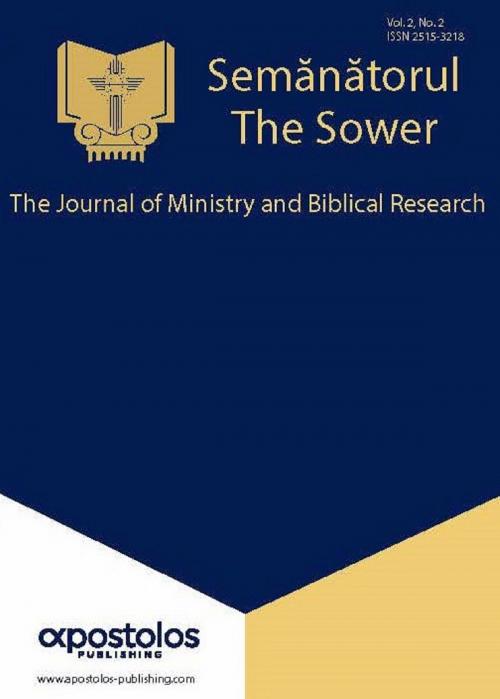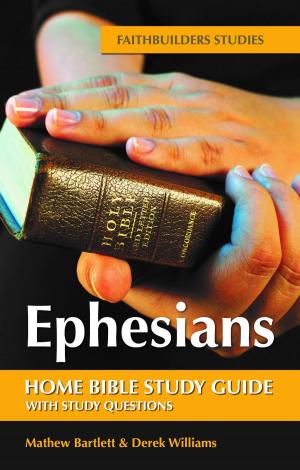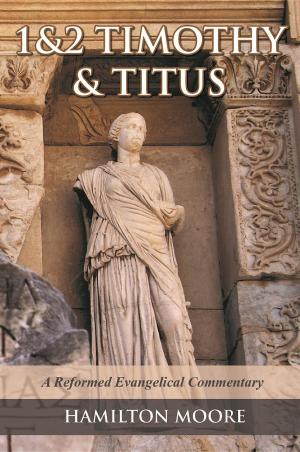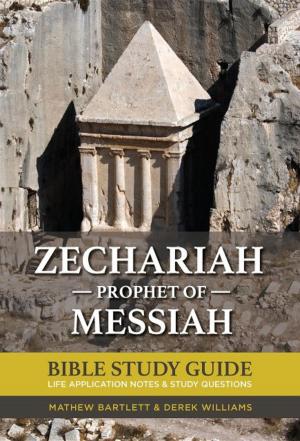Semanturol
Journal of Minsitry and Biblical Research
Nonfiction, Religion & Spirituality, Bible & Bible Studies, Criticism & Interpretation| Author: | ISBN: | 9781910942772 | |
| Publisher: | Apostolos Publishing Ltd | Publication: | January 17, 2019 |
| Imprint: | Apostolos Publishing Ltd | Language: | English |
| Author: | |
| ISBN: | 9781910942772 |
| Publisher: | Apostolos Publishing Ltd |
| Publication: | January 17, 2019 |
| Imprint: | Apostolos Publishing Ltd |
| Language: | English |
This issue includes a range of papers on various themes broadly related to ministry. Dr. David Allen focuses upon the use of quotations from the OT Scriptures in Hebrews as an example for preachers – as Hebrews is often claimed to have originally come from a sermon. Two things emerge; the ongoing relevance of Scripture and the fact that God continues in the present to speak through Scripture (which remains an authoritative Word of God), rather than through some ‘word of knowledge’ or extra-biblical revelation. Dr. Adrian Giorgiov’s article on Roy M. Oswald’s Concepts of Leadership in the Ministry. gives an overview of his basic leadership concepts, evaluates his strengths and weaknesses and, finally, views these concepts from theological perspectives. Michael A. G. Haykin writes about Charles Haddon Spurgeon and the Down-Grade Controversy. The article covers Liberal theology in nineteenth-century England and its inroads into British Baptists; particularly it focuses upon the early life and ministry of Spurgeon. The Ministry Challenge of Paul’s Poured-out Life and Faith Perspective: 2 Tim 4:1–8, by Rev Robert McAvoy brings challenges to all who seek to serve God from the example of the apostle Paul in the final years of his ministry. Hamilton Moore, in Efficient Preaching Techniques in the Pastoral Epistles, focuses upon how the Apostle Paul seeks to ‘mentor’ Timothy and Titus, apostolic delegates in Ephesus and Crete, part of his missionary team, guiding them concerning their preaching in the churches.
Gary Mathena reflects a totally different area of ministry. In The Romanian Church Musician he seeks to present the biblical justification for training musicians to serve the Romanian Evangelical Church. The focus is on articulating the Old and New Testament rationale for the training of church musicians. Dr Ovidiu Hanc in The Parable of the Great Banquet in Luke 14, rooted in the Isaianic divine feast, discusses how the parable reflects not only a grace-based universal invitation but also some ministry challenges that arise with the refusal of such an offer. Dr Ciprian Simuț seeks to present The Concepts of the Millennium and Universal Peace, as found in two of David Bogue’s discourses, delivered in the first quarter of the 19th century. Finally, Professor Corneliu C. Simuț brings us back to the present in his consideration of Albert Mohler Jr’s Homeletic Theology in Preaching the Word of God in the 21st Century as drafted in his He Is Not Silent. Preaching in a Postmodern World (2008).
This issue includes a range of papers on various themes broadly related to ministry. Dr. David Allen focuses upon the use of quotations from the OT Scriptures in Hebrews as an example for preachers – as Hebrews is often claimed to have originally come from a sermon. Two things emerge; the ongoing relevance of Scripture and the fact that God continues in the present to speak through Scripture (which remains an authoritative Word of God), rather than through some ‘word of knowledge’ or extra-biblical revelation. Dr. Adrian Giorgiov’s article on Roy M. Oswald’s Concepts of Leadership in the Ministry. gives an overview of his basic leadership concepts, evaluates his strengths and weaknesses and, finally, views these concepts from theological perspectives. Michael A. G. Haykin writes about Charles Haddon Spurgeon and the Down-Grade Controversy. The article covers Liberal theology in nineteenth-century England and its inroads into British Baptists; particularly it focuses upon the early life and ministry of Spurgeon. The Ministry Challenge of Paul’s Poured-out Life and Faith Perspective: 2 Tim 4:1–8, by Rev Robert McAvoy brings challenges to all who seek to serve God from the example of the apostle Paul in the final years of his ministry. Hamilton Moore, in Efficient Preaching Techniques in the Pastoral Epistles, focuses upon how the Apostle Paul seeks to ‘mentor’ Timothy and Titus, apostolic delegates in Ephesus and Crete, part of his missionary team, guiding them concerning their preaching in the churches.
Gary Mathena reflects a totally different area of ministry. In The Romanian Church Musician he seeks to present the biblical justification for training musicians to serve the Romanian Evangelical Church. The focus is on articulating the Old and New Testament rationale for the training of church musicians. Dr Ovidiu Hanc in The Parable of the Great Banquet in Luke 14, rooted in the Isaianic divine feast, discusses how the parable reflects not only a grace-based universal invitation but also some ministry challenges that arise with the refusal of such an offer. Dr Ciprian Simuț seeks to present The Concepts of the Millennium and Universal Peace, as found in two of David Bogue’s discourses, delivered in the first quarter of the 19th century. Finally, Professor Corneliu C. Simuț brings us back to the present in his consideration of Albert Mohler Jr’s Homeletic Theology in Preaching the Word of God in the 21st Century as drafted in his He Is Not Silent. Preaching in a Postmodern World (2008).















